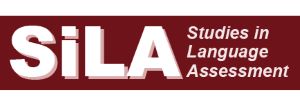Language assessment literacy and test validation: Highlighting the role of language teachers
Karin Vogt, University of Education Heidelberg
Dina Tsagari, Oslo Metropolitan University
Dina Tsagari, Oslo Metropolitan University
|
https://doi.org/10.58379/UQVQ7101
|
Volume 11, Issue 1, 2022
|
Abstract: Τheories of validity and validation have always formed an essential part of academic work in the field of language testing and have constituted an area of much debate and contestation. On the other hand, both theorising and evidence-gathering processes have been the privilege of few professions in the field. Against the background of more recent developments such as a closer alignment of language teaching and assessment, increased attention to individual learning needs and accessibility of language testing and assessment, expanded conceptualisations of validity seem to be required, considering diverse stakeholders in the validation process. The paper will discuss several frameworks of validation, and their potential for including important stakeholder groups such as language teachers in language test validation will be explored with a view to their enhancing language assessment literacy (LAL). It will be argued that teachers’ roles as professional agents can enhance the quality of the validation argument and their LAL at the same time.
Keywords: Language assessment literacy, foreign language teachers, classroom-based language assessment, validity, validation theory
